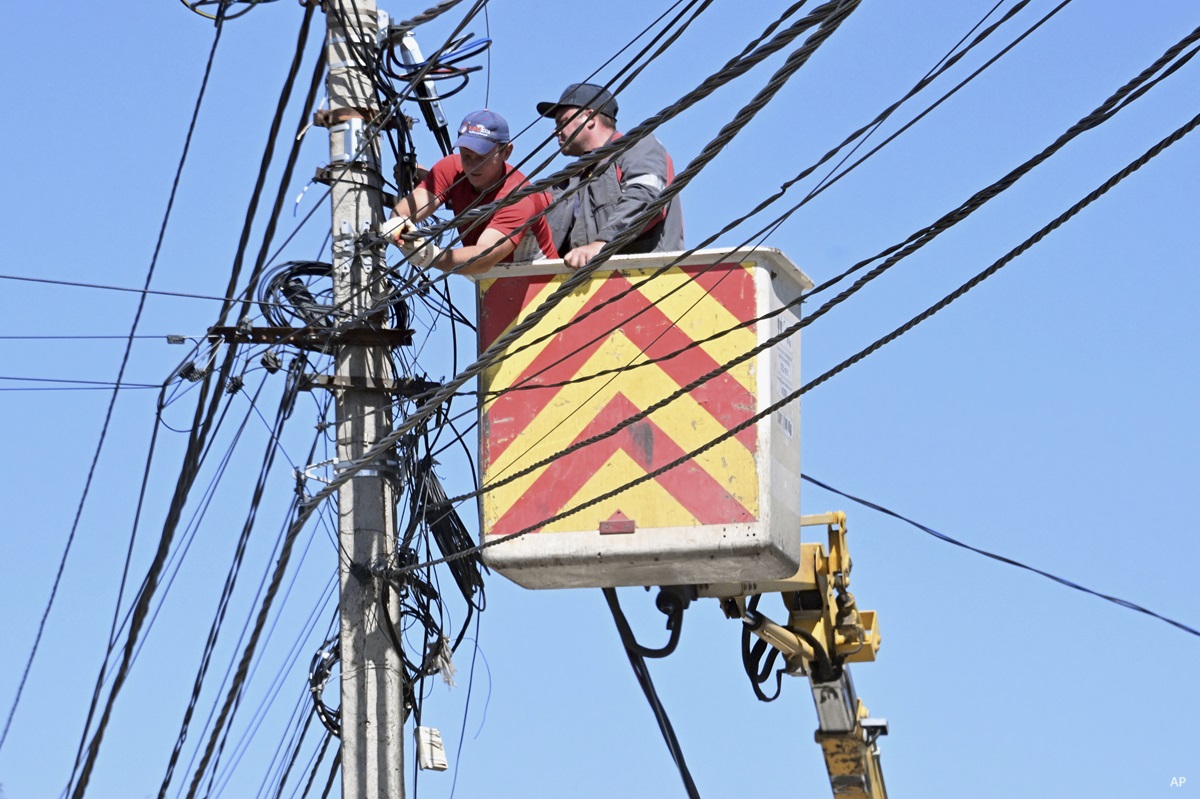
Having surged 69% from January 1st, 2023 to January 14th, 2024, Stella-Jones stock (SJ) advantageously compares with any sizzling hot technology stock. According to Goldman Sachs, the combined Magnificent Seven stocks advanced by 71% over 2023, barely a whisker above Stella-Jones, while the whole of the S&P 500 added only 6% over that period.
But Montreal-based Stella-Jones is not a tech darling. It is a lumber company that manufactures and distributes railway ties and infrastructure poles everywhere in North America, the latter making up 47% of sales. After hitting a low of C$31.28 in June 2022, the company’s stock started a relentless rise that brought it to a peak of C$85.23 on January 14th, 2023 (it has since settled back in the high C$70s).
Huge Network Overhaul Underway
One could be tempted, as a recent Wall Street Journal article does, to predicate the firm’s rise upon the expected explosion of electric vehicles and the accompanying energy transition. The company’s recent visibility is certainly not foreign to this theme, observes Benoît Poirier, Managing Director, Industrials, Transportation and Aerospace Analyst at Desjardins Securities, but the real impetus behind the company became manifest much earlier.
“We’re involved in a replacement cycle of infrastructure poles that started about eight ago,” says Stella-Jones president Eric Vachon. The simple truth is that we are constantly demanding more from the modest telephone pole which hasn’t gotten stronger with age. “One of our clients has a network of three million poles and he was buying 30,000 new poles from us each year,” Vachon illustrates, “That implies a 100-year life cycle when the practical cycle is rather 60 years.”
At one point, this client started buying 40,000 poles rather than 30,000. Then another did the same. Then another. “The process has greatly accelerated in the last three years, but I’ve seen it going on over seven years,” Vachon points out.
Utility Poles Can’t Take it Anymore
What we expect from the humble pole has steadily increased since the massive layouts of the 1950s and 1960s, and the network simply can’t handle it. Consider the simple demand for electricity for air conditioning. “When I was a kid, air conditioning was a luxury few homes could afford,” Vachon recalls, “Today, practically every home has it.”
But that’s not all. Poles started out transporting only electricity and phone lines. Then came cable, and then fibre optic. Then higher-performing transformers and heavier-duty hardware. Poles are cracking under the load.
And that was only the beginning. Now, utilities are all set to increase their electricity capacity to meet the EV challenge, like Hydro-Quebec which has recently announced a C$150 billion investment to double its electricity production, of which C$40 billion will go to solidify its existing infrastructure. “To incentivize drivers to buy EVs, regions need fast chargers on highways and in cities. For that, you’ll need more utility infrastructure, and a part of that will be utility poles,” explains Seth Goldstein, Equity strategist at Morningstar and Chair of the electric vehicle committee at Morningstar Research Services.
Announcements like Hydro-Quebec’s have been repeated across Canada and the United States. “Hydro One says it needs 100,000 more poles in the next 3-4 years as part of its broadband roll-out plan,” Poirier indicates, while BC Hydro’s new capital plan also includes the replacement of 100,000 poles. A recent PWC Canada study estimates that “generating electricity and producing the hydrogen to meet Canada’s 2050 targets could require $1.5 trillion in investments, ignoring distribution and supporting infrastructure requirements.”
Stella-Jones is Ahead of the Pack
In this race to re-pole North America, Stella-Jones is the dominant player, alongside smaller regional suppliers like Koppers Holdings (KOP), which has also seen its stock price surge by 65% over the past year, as of March 27, 2024. Other firms, which are not publicly traded, include names like Bell Pole and Marwood. The landscape is quite thin, finds Spencer Liberman, Equity analyst, industrials, at Morningstar. “When researching utility poles, I did not find any indications that West Fraser or any of the lumber companies I cover produce utility poles,” he recognizes.
With only a few players in the space, the “good old fashioned” wood pole niche reins supreme. There is some demand for poles made of composite, which is sturdier and can age more, but they are required only in areas like the Florida coast which is exposed to hurricanes. Composite poles are also about twice as expensive as wood equivalents. There is also some demand for steel rigs anchored in concrete, but that is for even more expensive and specialized requirements. And there are very basic needs that wood satisfies best: “Wood poles are easier to escalate and to drill when you need to add hardware,” Vachon notes.
Still Room to Rise
According to Poirier’s appraisal, Stella-Jones stock has not run its course. After its mid-January peak, the stock fell back to around C$77 following announcements that U.S. utility customers were softening their pace of pole purchases because higher costs of capital are delaying certain projects. But that is only a temporary setback that offers investors a welcome entry point, Poirier believes.
Poirier still considers Stella-Jones attractive for investors, projecting a price of C$92 in 2024. If the company meets its target revenues of $3.9 billion in 2025 with an EBITDA margin of 17.3% (which stood at 18% for 2023), the stock could land at C$102. If central banks chop down interest rates (pun intended), that could increase Stella-Jones’ cutting down of trees, Poirier believes, as lower rates would accelerate deployment plans for utility companies.





:quality(80)/cloudfront-us-east-1.images.arcpublishing.com/morningstar/QPMKPA6BWRCWVO64V5UQWWMPFI.jpg)

:quality(80)/cloudfront-us-east-1.images.arcpublishing.com/morningstar/GDTOG6TCABG2VER32KWOKC6ZJ4.png)












